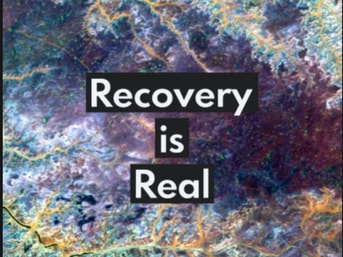Train your brain to think in terms of whether or not something is beneficial to your recoveryWhen exploring sobriety it can be helpful to ask ourselves questions. Drugs and alcohol have damaged our brain's ability to naturally think rational thoughts. Essentially our brains have been hijacked and reprogrammed to aggressively seek out artificial rushes of dopamine. So instead of trusting our initial reaction or judgement it may be beneficial to take a moment and evaluate whether something is helpful or unhelpful to our recovery. This is the practice of being mindful of our thoughts and the choices we make.
0 Comments
All Stages Of Recovery Bring Their Own Unique CircumstancesThere is so much emphasis put on helping and celebrating those in early addiction recovery. Think about the out pour of support and encouragement when loved ones see that you are serious this time. Or the great amount of effort put into welcoming you (the "new comer") at the meetings. And of course the new awakening within your soul that recognizes the importance and necessity of fighting to stay sober each and every day. This is beautiful and an extremely beneficial part of the recovery journey. But what happens when the newness starts to wear off? What happens when you've achieved 2-5 years of sobriety and your loved ones are no longer checking on you daily/weekly? What happens when you are no longer the new comer, but instead you're the sponsor? You're the one that others look up to, the one that inspires the group, the one that "made it." A lot of pressure can be felt at this stage of recovery. The every day stresses of responsible adult life can sometimes still be too much for a person in this stage of recovery. Guess what? That's okay. You're human. You have good days and bad days. You still have struggles and short comings. You are still very much a work in progress. It's wonderful that 2-5 years into recovery you have all the knowledge and tools necessary to be abstinent forever, but like any other human (especially one with an addiction history) your mind still sometimes whispers unhelpful and even harmful words of discouragement and temptation. Remember how you evicted those thoughts in the beginning. You can't let them live in your mind rent free now! Furthermore, it is important to point out that while 2-5 years of sobriety is a significant period of time - it is still considered the maintenance stage of recovery. In this stage an individual still has to work very hard to prevent relapse. They must maintain the healthy lifestyle changes they've implemented such as getting adequate sleep, exercise, and nutrition. They must continue to place a priority on sober recreational activities, growing their relationship with God, maintaining healthy relationships with friends and family and avoiding toxic relationships. While they do not feel the urge to relapse as often as they once did, they are not out of the woods, per say. A high risk situation, a lapse in judgement, an emotional day, a particularly stressful event, or any combination of a multitude of possible circumstances can lead to a person with years of recovery choosing to relapse. And Yes, At This Stage Of Recovery It Is Once Again A Choice |
AuthorSubstance Abuse Counselor Archives
May 2024
Categories
All
|


 RSS Feed
RSS Feed